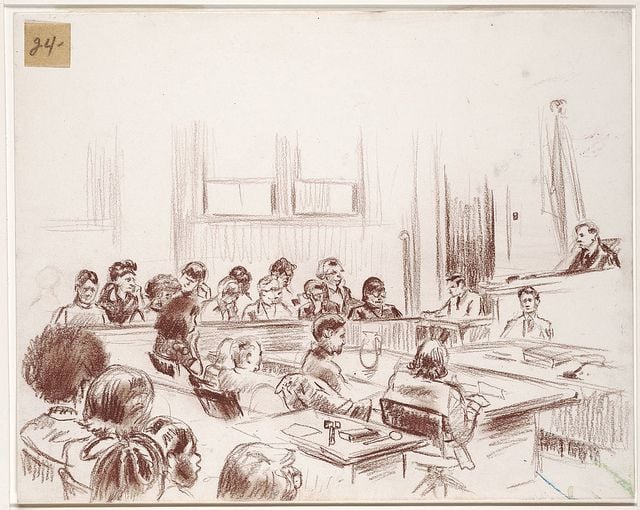Crowdfunding legal representation sounds like a crazy idea. But is it good crazy or bad crazy?
That’s what Sam Saad hopes to figure out. Saad, 31, is an educator at the University of Toronto and the lead on a new project called Just Access, which aims to allow anyone in the United States or Canada to pitch their story online and attempt to cover the cost of their legal fees with what people donate. Just Access is in its final stages of buildout.
Why might one want to pay the legal fees of people he or she has never met? “Simply put,” reads the project description, “they act as your representatives in the courts, and you help shape society through their legal battles.”
Everyone knows lawyers can be expensive, and access to decent legal services is a persistent challenge in both countries. But there’s a particular resonance for cities. In the U.S., at least, the incarcerated tend to come from cities, and urban environments have the density that might help propel cases on, say, cleaning up a polluted site or stopping racial profiling.
More than that, there are Saad’s intentions. He said in a call today that he was inspired to create Just Access by his time as an electoral official with the United Nations in Kunduz, Afghanistan, Kathmandu and Mahotari, Nepal, and Lautem, East-Timor. He came to believe in the power of “institution building through civic action and engagement.”
Users on Just Access can post a description of their case and funding target, along with, eventually, supporting raw materials. “We’re going to have certain fields for a docket or case number,” Saad said. “Anything they feel like sharing to strengthen their case.”
I asked Saad if he’s worried that Just Access will become a popularity contest, and perhaps reaffirm some of the same biases and advantages the site is meant to tamp down. “It’s up to the crowd to decide what cases they’d like to fund,” he said. “It’s like any other crowdfunding site. The more open they are and the more genuine they are, the more successful they will be.” As Just Access will be an open platform, I asked Saad if his team will take steps to make sure that a crowdfundee’s description of his or her legal situation has at least some semblance to the facts.
“We don’t judge a case,” he responded. “That’s up to the courts. We encourage people to present their legal stance on the matter, and if the courts don’t agree with that, that’s justice being served.”
That said, Saad explained that “what we’re offering is insurance that the funds will be spent for their intended purposes.” In the early stages, Saad and his colleagues will pay legal bills directly. But in the future, they’ll partner with community legal services groups to act as third-party vetters of invoices attorneys submit. Any surplus crowdraised funds left after the case is resolved the local legal group gets to keep.
(Just Acess will, Saad also mentioned, have to be a bit careful about the limits on champerty, the wonderfully named legal concept wherein a third party gets involved in a legal case to which it’s not a party.)
“Crowdfunding for justice” is a fairly new concept, though it has been tried in Spain, where there was an attempt last summer to raise funds to go after the former chairman of a troubled Spanish bank. But crowdfunding for social causes has had some success here in the United States. ActBlue, for one, has raised some $400 million for Democratic candidates and progressive causes since 2004.
Just Access is being, yes, crowdfunded, and it hopes to raise $10,000 to finish the platform and line up three test cases for launch in November.

Nancy Scola is a Washington, DC-based journalist whose work tends to focus on the intersections of technology, politics, and public policy. Shortly after returning from Havana she started as a tech reporter at POLITICO.
















